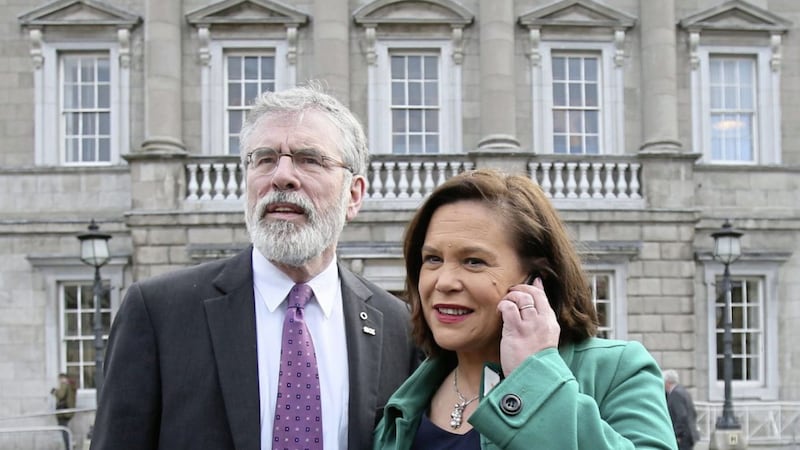The big news stories out of the European and local elections south of the border were of course the rise in support for the Green Party and the decline of Sinn Féin.
It is worth recalling how, back in 2007, the Greens became minority partners in a coalition with Fianna Fáil, but in the 2011 general election all of the smaller party’s six TDs lost their seats. The future looked grim, although I compared them at the time to those early Christians who were fed to the lions by the Romans but whose message survived and even triumphed in the end.
As regards Sinn Féin, in the 2014 European and local elections in the south the party had a pinch-me-is-it-real experience, with a massive increase in local councillors from 54 to 159 and getting three candidates elected as Members of the European Parliament. Five years on, Sinn Féin were reduced to 81 council seats and one candidate definitely elected to Europe, with the fate of another contender subject to a recount.
Back in 2014, the party benefited from the fact that the economy was just emerging from a banking crisis and also that the Fine Gael-led government’s attempt to introduce domestic water charges sparked-off major protests. There has since been a recovery of sorts and although the current housing shortage is a serious issue, it hasn’t taken off in the way water charges did. In addition, climate change is now centre-stage, generating a rise in support for the Greens.
Inevitably, questions have been raised about Mary Lou McDonald’s leadership. Given the barrage of negativity directed at Gerry Adams from political opponents and elements of the media, there was a fairly widespread expectation that things would improve when he was succeeded by a member of the post-Troubles generation with a formidable record in parliamentary debate.
When Fianna Fáil and Fine Gael stood aside from last year’s presidential election, Sinn Féin seemed to have a chance of winning over middle-ground voters. It didn’t happen: the party received a miserable 6.4 per cent vote and came fourth in the race.
The next big test will come when the Dáil is dissolved for a general election. As I write, no date has been set but, although it does not have to take place until April 2021 at the latest, there could be a “run to the country” at any time. The challenge for Sinn Féin is to avoid a repetition of the presidential disaster and the recent mediocre European and local council results.
It is hard to avoid the conclusion that the departure of Adams from the top spot has actually damaged the party in electoral terms. There is a core republican grassroots element among the electorate with whom he would have iconic status, virtually regardless of what was said and written about him.
It could be argued that the current crop of Sinn Féin leaders has distanced itself a little too much from the republican perspective of the past. The classic example of this was presidential candidate Liadh Ní Riada’s suggestion that she would, despite reservations, wear a poppy on Armistice Day. In a different setting that could have been regarded as an admirable gesture of reconciliation towards the unionist community but there weren’t many unionists voting in the presidential race.
Perhaps there was a feeling that adopting such a stance on the poppy would encourage voters in the Fine Gael and Fianna Fáil camps to consider supporting Sinn Féin, in the absence of a candidate from their own party, but it clearly didn’t work.
Interestingly, an exit poll conducted by RedC for the RTÉ and TG4 broadcast outlets during the recent European and local elections showed that 65 per cent of respondents would vote for a united Ireland if a referendum was held in the morning. The Sinn Féin press office sent out an email in the name of Michelle O’Neill MLA welcoming this poll result but, from checking my inbox, this was one of relatively few statements received from the party in relation to the north in recent weeks – there is of course an occasional pronouncement on the dreaded Brexit.
Mind you, the last thing we need is a return to the days of empty rhetoric about Irish unity, with repetitive, near-robotic calls for a border poll. Instead of drumbeat republicanism we need fresh and creative thinking about the future of the entire island. The well-attended gatherings in the name of civic nationalism at Belfast’s Waterfront Hall and more recently in Newry indicate that something is stirring at grassroots level which hasn’t been properly reflected in political debate. The mood and atmosphere recalled the early days of the civil rights movement which was a strong example of creative thinking and a new approach to old problems. I gather a similar event is planned for Dublin: now that will be interesting.
Ddebre1@aol.com








